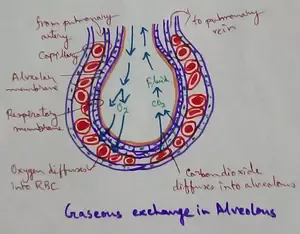Worksheet on Movement and Shelter of Animals
Worksheet on movement and shelter of animals contains various types of questions on different types of animals and their different types of feet movements and shelters.
Read the concept to answer the questions on movement and shelter of animals.
I. Fill in the blanks:
(i) Hens are kept in a _________.
(ii) Frogs use their _________ legs to jump forward.
(iii) A snake _________ on the ground.
(iv) An earthworm lives in the _________.
II. Mark a (√) against
true or a (X) against false statements:
(i) Fish have wings to swim.
(ii) The padded under surface of the toes helps a lizard to cling to walls.
(iii) The legs of cats and larger hunting animals are shaped to make them run fast.
(iv) Snakes have a number of legs on which to crawl.
(v) Insects have four legs.
III. Answer the following questions:
(i) How do legs of a rabbit help it to move about?
(ii) How are padded feet useful to some animals?
(iii) How should we take care of our domestic animals?
Check the answers of worksheet on movement and shelter of animals:
Answers:
I. (i) coop
(ii) hind
(iii) crawl
(iv) soil
II. (i) X
(ii) √
(iii) X
(iv) √
(v) X
III. (i) Legs of a rabbit help to jump or hop about. They have strong legs. The front legs are short while the hind legs are long. The hind legs push the body to jump forward. They land on the strong front legs.
(ii) Padded feet are useful to some animals because this helps them to move silently while hunting for their prey.
(iii) We should take care of our domestic animals by providing them with clean shelters and sufficient food and water. We must also give them medical treatment when they are ill.
From Worksheet on Movement and Shelter of Animals to HOME PAGE
Recent Articles
-
Formed Elements of Blood | Erythrocytes | ESR |Leukocytes |Neutrophils
Jan 15, 26 01:25 AM
Formed elements formed elements are constitute about 45 % of blood afeias haematocrit value packed cell volume mostly of red blood corpuscles and are of 3 types- erythrocytes, leukocytes and blood pla… -
What Is Plasma? | Blood Plasma | Proteins | Nutrients | Cholesterol
Nov 07, 25 10:29 AM
Blood is a mobile fluid which is a connective tissue and is derived from the mesoderm like cell any other connective tissue. Colour of blood is reddish and that flows inside the blood vessels by means… -
Disorders of Respiratory System | Tuberculosis | Pleurisy | Emphysema
Oct 28, 25 11:39 PM
Tuberculosis is very common disease and is caused by a type of bacteria called Mycobacterium tuberculosis. This disease causes different trouble in the respiration and infection of several parts of th… -
Regulation of Respiration | Respiratory Centres | Inspiratory Area |
Oct 14, 25 12:13 AM
Respiratory Centre is the area that controls the rate of respiration and it is observed to be located in medulla oblongata and pons. Respiratory Centre has the following will dispersed components like… -
Explain Transport of Gases | External Respiration | Tissue Respiration
Oct 09, 25 11:35 PM
In humans gaseous exchange is completed in the following ways the steps are - External Respiration or Breathing - Breathing in false taking in of Oxygen and giving out of carbon dioxide in the body. M…





New! Comments
Have your say about what you just read! Leave me a comment in the box below.